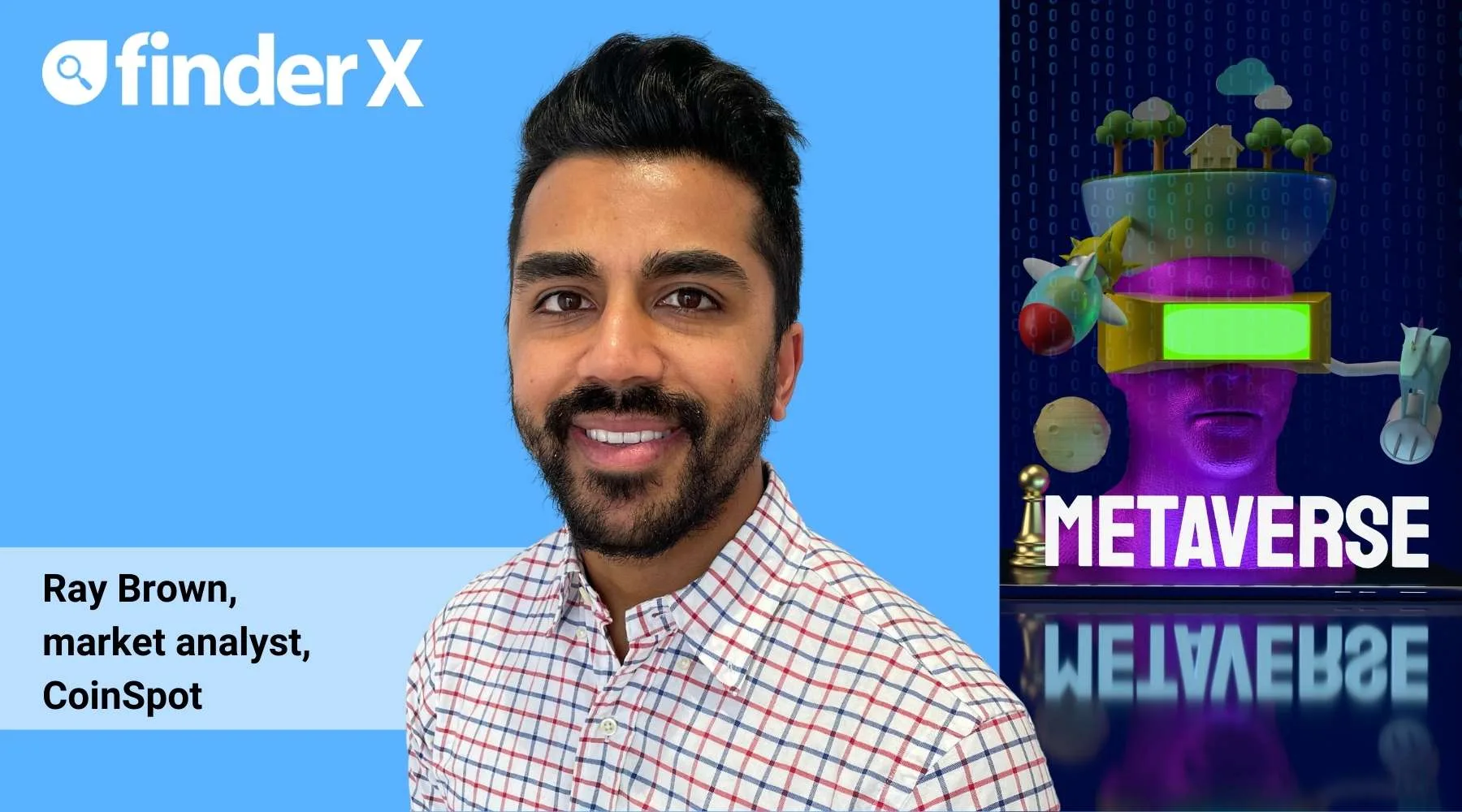What Zuckerberg’s metaverse means for crypto

Some marvel at the endless opportunities the metaverse may offer – but should we be a little more hesitant?
In October 2021, social network giant Facebook made headlines as it announced its rebrand to "Meta" and plans to launch its highly anticipated metaverse, complete with a social platform called "Horizon".
According to Meta founder Mark Zuckerberg, the metaverse will be made up of virtual public rooms, spaces for games, people's personal domains – "home spaces" that users can customise with art and dedicated work spaces, as well as full "worlds" and places plucked out of time.
Zuckerberg says the metaverse is the next evolution for social networking, moving past static user profiles that let people merely post comments and photos.
To reach it, people would need to wear VR headsets or augmented reality glasses that superimpose the digital realm onto the physical world.
As exciting as all of this sounds, there are risks to consider as well – and experts are now contemplating how cryptocurrency might be associated with the metaverse.
New economic systems
Meta has already confirmed it has cryptocurrency plans in the works, as a further extension of the digital world in everyday life that will aim to rewrite the script on what it means to purchase and own something.
It's anticipated that new economic systems, based on cryptocurrencies and NFTs, would let people buy and sell goods and services available in the metaverse.
When focusing more closely on NFTs, which are said to fuel the growth of the metaverse, it's likely that gaming companies that use NFTs as in-game tokens and collectables, will be able to build virtual economies in the metaverse based around play-to-earn gaming models.
However, this concept isn't entirely new in the gaming industry.
Decentraland, an online community where users can create avatars of themselves and interact have been toying with this idea for a while now. It even calls itself "the first-ever virtual world owned by its users".
Meta's failed stepping stones into cryptocurrency
While many are excited for the metaverse, others are speculative about whether cryptocurrency is necessary and if Meta will be able to successfully pull it off.
This is particularly important given its previous failed attempts to launch its own blockchain and cryptocurrency, both of which are said to be Meta's original stepping stones to the metaverse.
The metaverse could exist without cryptocurrency and blockchain technology, however, the true metaverse is intrinsically linked with the blockchain concept of an open, interoperable network where virtual assets are exchanged and stored via a trustless and verifiable ledger.
To date, Zuckerberg hasn't shared any details that could help determine exactly how Facebook's metaverse will relate to blockchain technology. According to a recent interview with Gary Vee, he revealed that he has tried his hand at various metaverses and crypto products.
Despite this, hype around the metaverse and cryptocurrency is starting to build, especially when it comes to what are known as "metaverse cryptos":
Metaverse cryptos such as MANA (for Decentraland), SAND (for The Sandbox Ecosystem) and Enjin Coin, are digital currencies tied to decentralised blockchain metaverses where users are the masters of their experiences, as opposed to their metaverses being owned and determined by centralised organisations like Facebook.
As tech giants like Meta seek to dominate the industry, these metaverse cryptocurrencies are seen as a way to subvert Meta and push the industry toward further decentralisation.
More cryptocurrency platforms have introduced metaverse tokens to their exchanges, the most popular including MANA, SAND, Illuvium, Axie Infinity to name a few. Exchanges like CoinSpot have even launched metaverse bundles that allow investors to hold a stake in the metaverse cryptocurrencies available on the platform.
Will Zuckerberg's metaverse change the game for cryptocurrency? It's hard to say just yet – but it definitely helps to thrust cryptocurrency into the mainstream, given its potential exposure to billions of the social media platform's users.
Will this be the real-life version of "Ready Player One" or will we see this technology take us to places we can't even imagine? Only time will tell.
Ray Brown is a market analyst at CoinSpot.
Disclaimer: The views and opinions expressed in this article (which may be subject to change without notice) are solely those of the author and do not necessarily reflect those of Finder and its employees. The information contained in this article is not intended to be and does not constitute financial advice, investment advice, trading advice or any other advice or recommendation of any sort. Neither the author nor Finder has taken into account your personal circumstances. You should seek professional advice before making any further decisions based on this information.
Read more Finder X columns
-
All the big savings account interest rate rises: ING, AMP, Westpac + more
6 Feb 2026 |
-
Australian credit card debt soars 10% in a year: How can you escape the trap?
6 Feb 2026 |
-
4 cashback home loan offers to ease the pain of RBA rate hike
4 Feb 2026 |
-
Finder’s RBA Survey: Easing cycle ends as RBA delivers first rate hike since 2023
4 Feb 2026 |
-
Ubank Save is increasing its bonus rate up to 5.35% p.a.
3 Feb 2026 |
Ask a question
